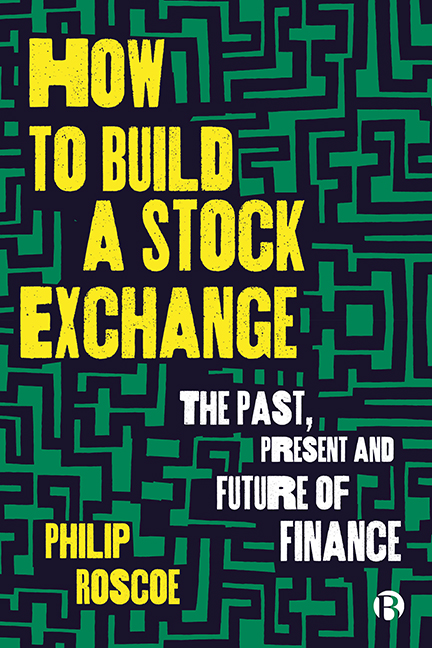12 - Extractive Industries
Published online by Cambridge University Press: 18 January 2024
Summary
In the early 2000s, a raft of prospectors and promoters dusted down their maps and permits and came to the market in London. Geographical resources must be proven. This is an expensive process, and it brings together many of the attributes of stock markets that we have discussed so far: the brute materiality of diamond core drilling, with tubes of rock sent to the laboratory for analysis; international capital flows, environmental concerns and rights of ownership; the labour practices that might eventually be involved in excavating the minerals; and, last of all, stories of the future – of wealth and possibility – and the past – of national identity and colonial relations.
There is a division of labour in mining exploration. Large firms, with the capital required to set up mining operations, attend to the business of digging materials out of the ground. It is a huge, international business, dominated by a handful of giant corporations, and run from global centres of commerce. Mining firms do not like funding exploration, however; at its earliest stages exploration is simply too risky, with the chance of success of any single location less than a single per cent. Here, junior firms step forward, each with a cluster of licences and the local knowledge of a prospector. The firms seek to raise money from shareholders, to be spent on seismic mapping and exploratory drilling. At the beginning there is nothing more than a story, perhaps backed up by the geologist’s past record, or that of the promoter. These stories must invoke possibilities of future riches in order to persuade shareholders to part with their money: they are the imagined futures on which much economic activity depends. The unknown reserve slowly gathers shape and form on the exploration company’s balance sheet. Each successful round of drilling is rapidly reported to shareholders in the hope or generating enough speculative excitement to finance the next round of analysis, and so on, until eventually the whole can be bought out by a giant, cash-rich corporation, and those brave, early shareholders get their rewards.
In Chapter 10 we met private investors doggedly seeking hidden value, hoping that their hard work would turn up riches overlooked by the big players.
- Type
- Chapter
- Information
- How to Build a Stock ExchangeThe Past, Present and Future of Finance, pp. 132 - 142Publisher: Bristol University PressPrint publication year: 2023



